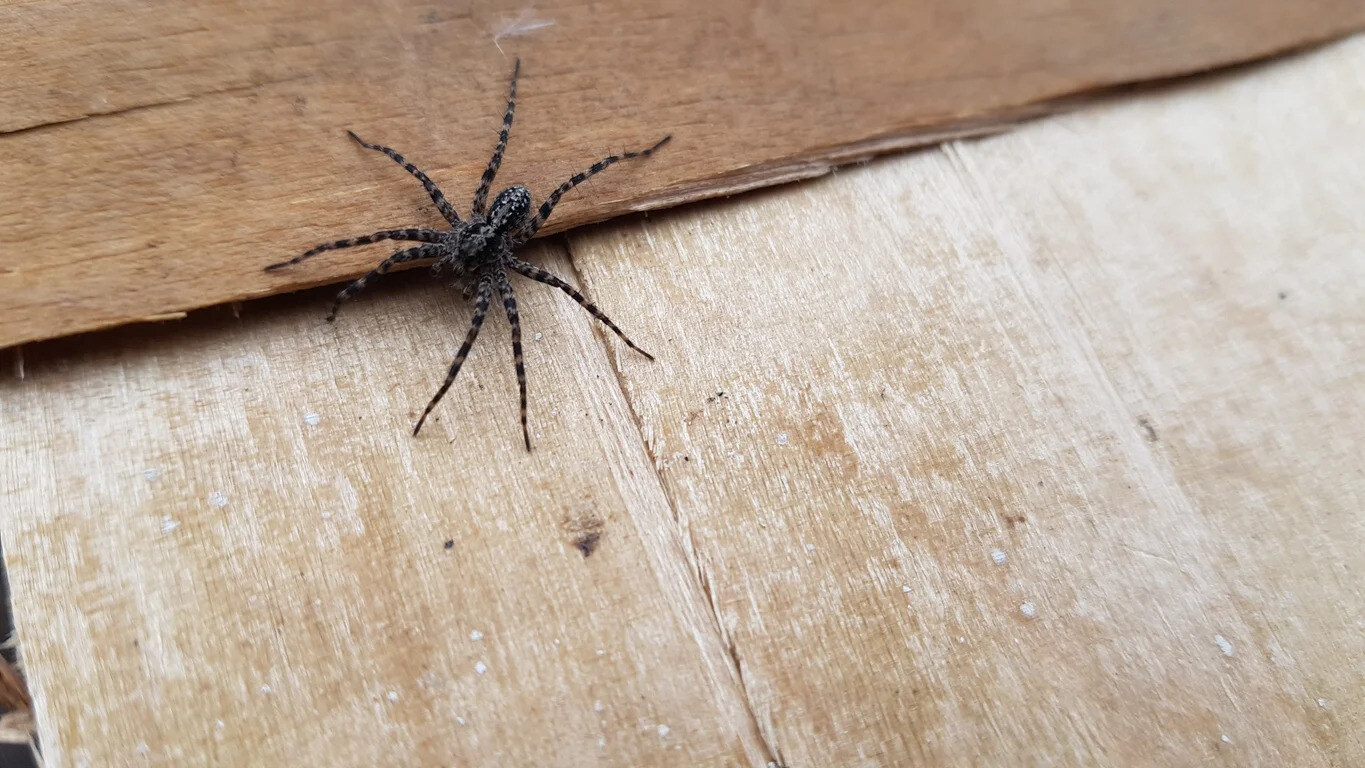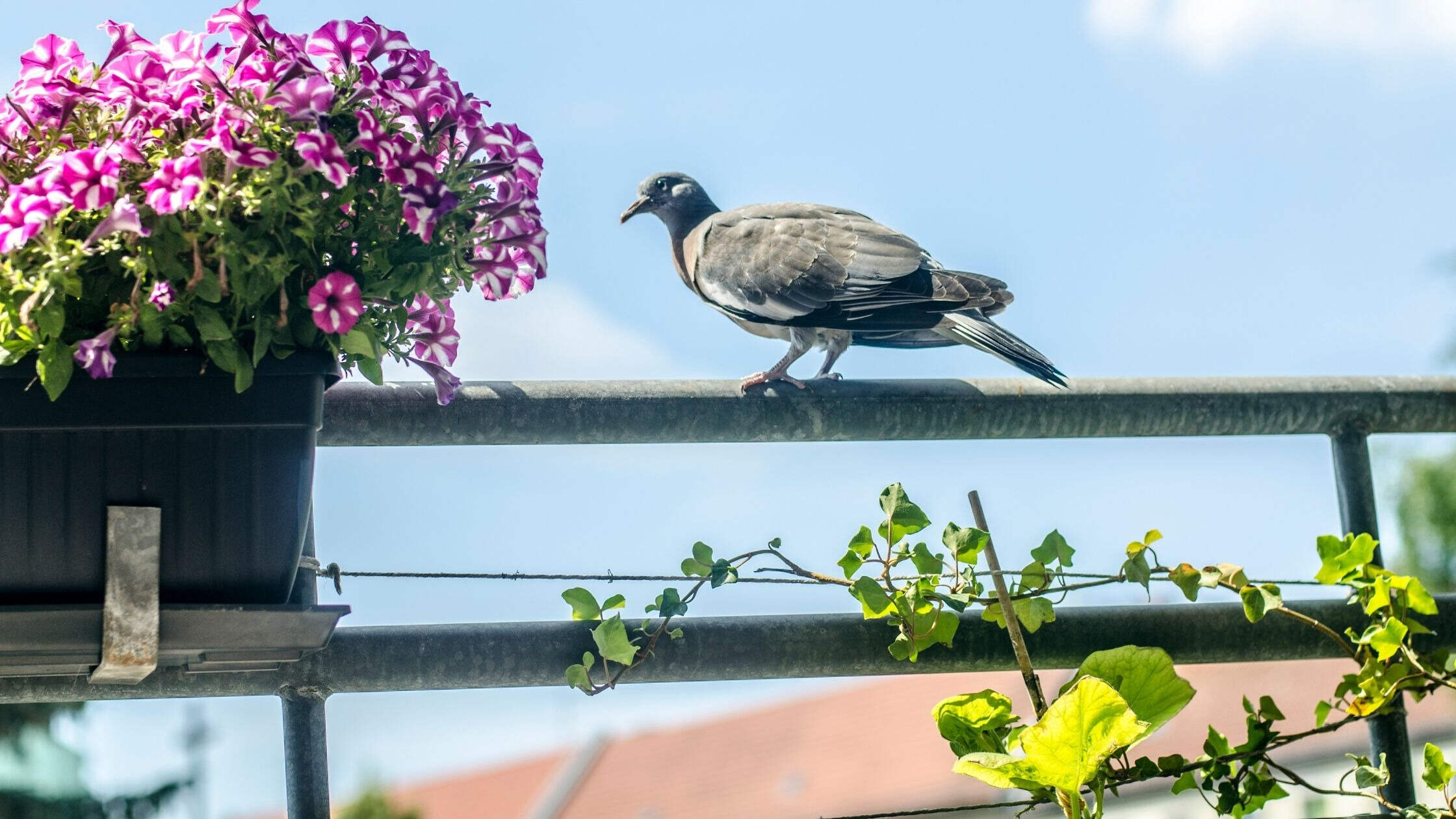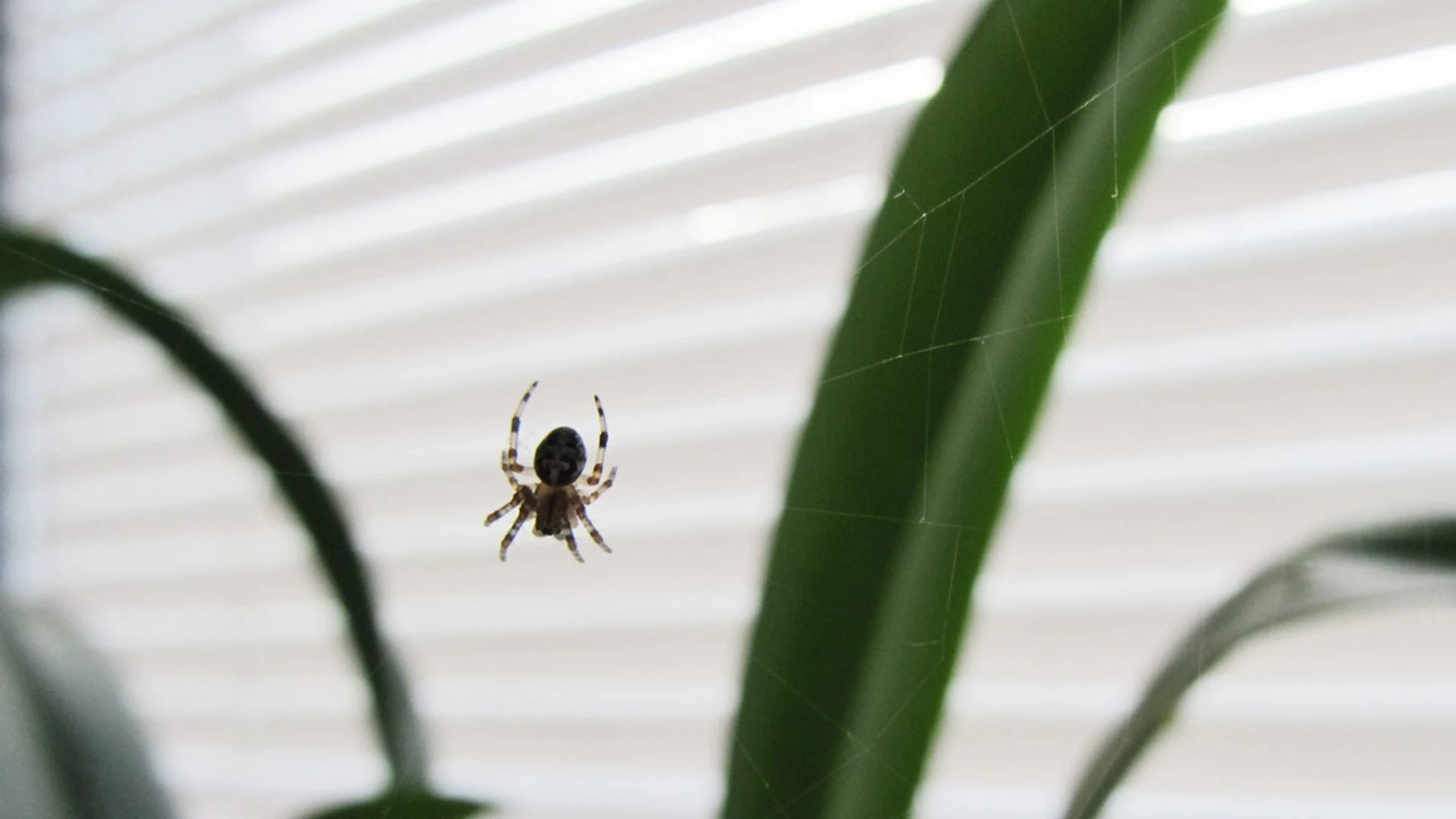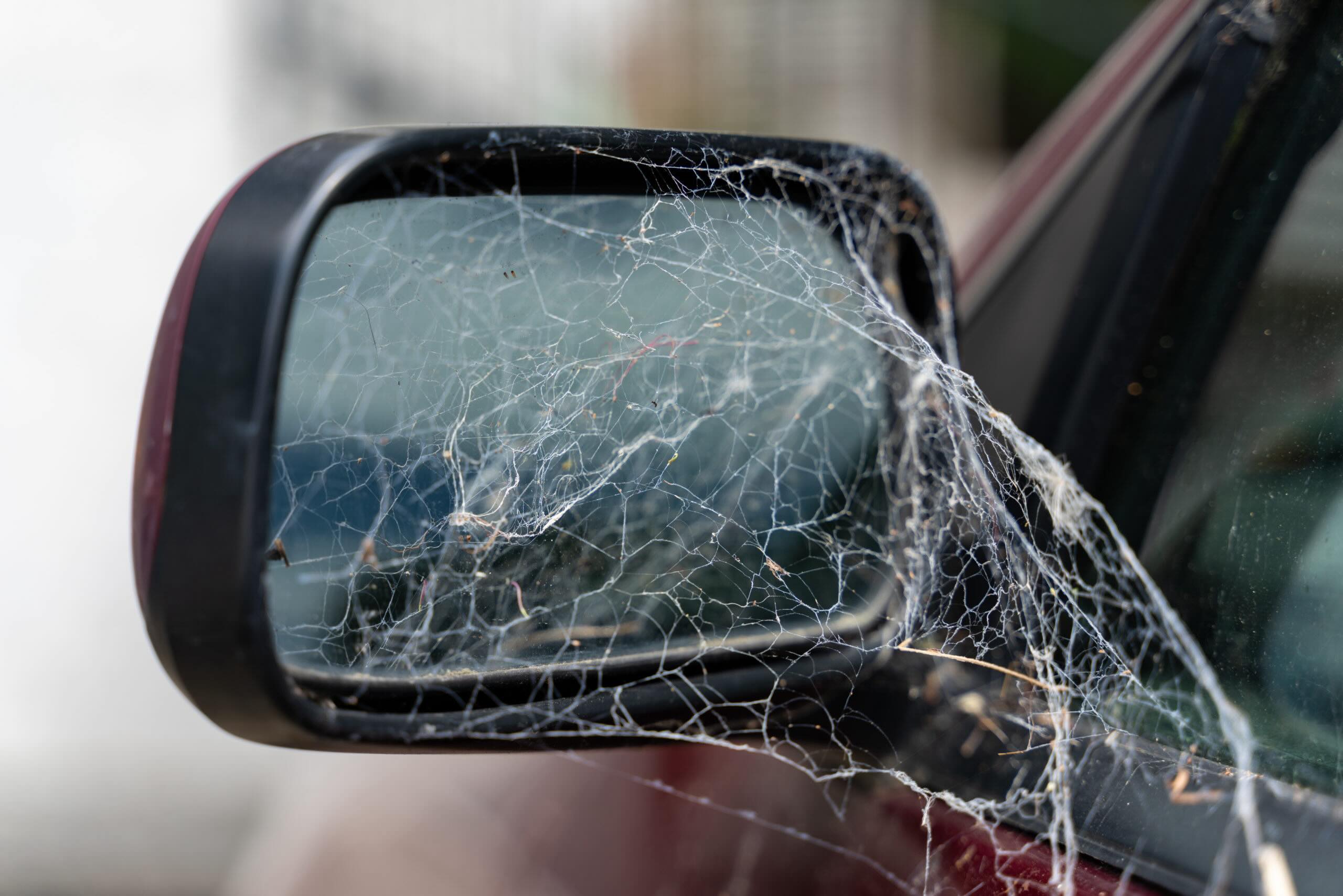Home>Furniture>Outdoor Furniture>How To Keep Spiders Off My Patio


Outdoor Furniture
How To Keep Spiders Off My Patio
Modified: March 7, 2024
Learn effective techniques to keep spiders away from your patio and protect your outdoor furniture. Discover natural remedies, effective products, and practical tips for a spider-free outdoor space.
(Many of the links in this article redirect to a specific reviewed product. Your purchase of these products through affiliate links helps to generate commission for Storables.com, at no extra cost. Learn more)
Introduction
Welcome to our comprehensive guide on how to keep spiders off your patio. If you love spending time outdoors, relaxing on your patio, the last thing you want is a spider invasion. While spiders play an important role in the ecosystem, they can be unwelcome guests when they start to populate your outdoor living space. Not only can spider webs be unsightly, but some spider bites can also be painful or potentially dangerous.
Understanding how spiders behave and what attracts them to your patio is the first step in effectively repelling them. In this article, we will delve into the fascinating world of spiders and explore natural ways to keep them off your patio. From essential oils to regular cleaning tips, we have got you covered.
Key Takeaways:
- Natural methods like peppermint oil and vinegar can repel spiders from your patio, keeping it spider-free without harmful chemicals.
- Regular cleaning, maintenance, and removing spider webs are essential for a tidy, spider-free patio. Professional pest control can help with severe infestations.
Read more: How To Keep Spiders Off Patio Furniture
Understanding Spiders
Spiders are arachnids, a class of joint-legged invertebrates that also includes scorpions, ticks, and mites. They are found all over the world, with over 45,000 known species. However, only a small percentage of them are commonly found around human dwellings. Spiders vary in size, color, and behavior, but they all share some common characteristics.
One key feature of spiders is their ability to spin webs, which they use for trapping and hunting their prey. These webs can be intricate and beautifully crafted, providing a place for spiders to live and hunt. Spiders are known for their silk production, which is formed in their silk glands and expelled through spinnerets located at the end of their abdomen. They use this silk to build their webs, create egg sacs, and even for transportation, as some spiders can use it as a form of flight.
Spiders are carnivorous creatures, feeding mainly on insects and other small arthropods. They are considered beneficial to have around as they help control the populations of pests like flies, mosquitoes, and other common garden pests. However, when spiders start to invade your patio and spin their webs in undesirable locations, it’s time to take action.
It’s important to note that most spiders are harmless and non-aggressive towards humans. In fact, they would prefer to avoid us altogether. However, there are a few species of spiders that may pose a danger with their venomous bites, such as the black widow spider or the brown recluse spider. It’s a good idea to familiarize yourself with the common spider species in your area to identify any potentially harmful ones.
Now that we have a better understanding of spiders and their behaviors, let’s explore some common spider species that you may encounter on your patio.
Common Spider Species Found on Patios
When it comes to patios, there are several spider species that are known to frequent outdoor areas. While the presence of spiders may vary depending on your location and the time of year, here are a few of the most commonly encountered spider species you may find on your patio:
1. Garden Spider (Araneus diadematus):
The garden spider is easily recognized by its large round abdomen with a signature white or yellowish cross-shaped pattern. They are known for their intricate, circular, and orb-shaped webs, which they build to catch flying insects. Garden spiders prefer sunny areas with plenty of vegetation and are commonly found in gardens, shrubs, and trees surrounding patios.
2. Cellar Spider (Pholcus phalangioides):
Also known as the daddy longlegs spider, the cellar spider is characterized by its long, thin legs and small body. They are often found in dark, damp areas such as basements, garages, and crawl spaces. While not harmful to humans, they can become a nuisance when they spin webs in corners and crevices on the patio.
Read more: How To Keep Ants Off My Patio
3. Wolf Spider (Lycosidae):
Wolf spiders are large, robust spiders known for their hunting prowess. They do not build webs but prefer to actively hunt and ambush their prey. These spiders have excellent eyesight and can often be seen running across the patio searching for insects to catch. While their size and appearance may intimidate some people, wolf spiders are generally harmless unless provoked.
4. Jumping Spider (Salticidae):
Jumping spiders are small, compact spiders known for their impressive jumping ability. They are characterized by their large front eyes, which give them excellent vision. These agile hunters use their incredible jumping skills to pounce on unsuspecting prey. Jumping spiders are often found on patios with foliage and flowers, as they rely on their eyesight to spot potential meals.
5. Orb Weaver Spider (Araneidae):
The orb weaver spider is known for its large, circular webs that it constructs to catch flying insects. They have a wide variety of appearances, with some species exhibiting vibrant colors and intricate patterns. Orb weavers tend to build their webs in locations with abundant insect activity, making patios a favorable hunting ground.
These are just a few examples of the common spider species you may encounter on your patio. Remember, not all spiders are harmful, and they play an important role in maintaining ecological balance. However, if you want to keep them off your patio, continue reading to learn some natural ways to repel spiders.
Natural Ways to Repel Spiders
If you’re looking for natural and non-toxic methods to keep spiders off your patio, there are several effective options available. These methods aim to deter spiders by creating an environment that they find unappealing or challenging to navigate. Here are some natural ways to repel spiders from your outdoor living space:
Read more: How To Keep Bees Off Patio
1. Peppermint Oil:
Spiders dislike the strong scent of peppermint oil. Mix a few drops of peppermint essential oil with water in a spray bottle and spritz it around your patio, paying particular attention to areas where spiders are likely to hide or create webs. Repeat this process regularly to maintain the repellent effect.
2. Vinegar Solution:
Vinegar has a strong odor that spiders find unpleasant. Create a vinegar solution by mixing equal parts white vinegar and water in a spray bottle. Spray this solution around your patio, focusing on potential entry points like doors, windows, and cracks. Spiders will be deterred by the scent and avoid those areas.
3. Citrus Peels:
Spiders have a natural aversion to citrus scents. Place citrus peels or slices around your patio, particularly in areas where spiders are commonly seen. The scent of citrus will help repel spiders and keep them away from your outdoor space.
4. Cedar Mulch:
Cedar mulch has a strong aroma that spiders dislike. Spread cedar mulch around the perimeter of your patio and in flower beds near your outdoor living area. This acts as a natural barrier and helps repel spiders from venturing too close to your patio.
Read more: How To Keep Worms Off The Patio
5. Seal Cracks and Entry Points:
Spiders can enter your patio through small cracks and gaps in doors, windows, and walls. Inspect your patio for any potential entry points and seal them using caulk or weatherstripping. By doing so, you create a physical barrier that prevents spiders from accessing your outdoor space.
6. Remove Clutter and Debris:
Spiders thrive in cluttered and undisturbed areas. Regularly clean and declutter your patio by removing any piles of leaves, tall grass, or other debris. This eliminates potential hiding spots and reduces the appeal of your patio to spiders.
7. Reduce Outdoor Lighting:
Spiders are attracted to light, as it attracts their prey. Consider reducing the amount of outdoor lighting around your patio, especially bright lights that are left on overnight. By doing so, you can minimize the presence of insects and reduce the overall appeal of your patio to spiders.
These natural methods can help repel spiders from your patio, effectively creating a spider-free outdoor environment. However, it’s important to note that these methods may not completely eliminate spiders. If you’re dealing with a severe infestation or have concerns about venomous spiders, it may be necessary to consult with professional pest control services.
Essential Oils That Repel Spiders
Essential oils are not only known for their pleasant aromas but also for their ability to repel spiders. These natural plant extracts contain compounds that spiders find irritating or unpleasant, making them an effective deterrent. Here are some essential oils that you can use to repel spiders from your patio:
Read more: How To Keep Bees Off Patio
1. Peppermint Oil:
Peppermint oil is highly effective in repelling spiders due to its strong scent. Spiders are known to dislike the smell of peppermint, making it an excellent choice for keeping them away from your patio. Mix a few drops of peppermint essential oil with water and spray it around your patio, focusing on areas where spiders tend to gather or create webs.
2. Eucalyptus Oil:
Similar to peppermint oil, eucalyptus oil has a potent scent that spiders find repulsive. Create a solution by combining a few drops of eucalyptus essential oil with water in a spray bottle. Apply this mixture around your patio, paying special attention to potential entry points and areas where spiders are commonly seen.
3. Tea Tree Oil:
Tea tree oil is well-known for its antimicrobial properties, but it also serves as an effective spider repellent. Its strong smell helps deter spiders from entering your patio. Dilute a few drops of tea tree oil in water and spray it around your outdoor living space to keep spiders at bay.
4. Lavender Oil:
Lavender oil has a calming and soothing aroma for humans, but spiders find it quite unpleasant. Use lavender essential oil to create a spider repellent spray by mixing a few drops with water. Spritz it around your patio to repel spiders and create a pleasant fragrance in the process.
Read more: How To Keep Squirrels Off Patio Furniture
5. Lemon Oil:
The citrusy scent of lemon oil is another effective way to repel spiders. Spiders have a natural aversion to citrus smells, making lemon oil a great option for keeping them away from your patio. Dilute a few drops of lemon essential oil in water and spray it in areas where spiders are commonly found.
Remember to always follow the instructions provided with essential oils and use caution when applying them as they are concentrated substances. While these essential oils can help repel spiders, the effects may vary depending on the species and individual preferences of the spiders in your area.
By using these essential oils as part of your spider deterrent arsenal, along with other natural repellents and preventive measures, you can create an unwelcome environment for spiders on your patio and enjoy a spider-free outdoor space.
Creating a Spider-Friendly Patio
While many homeowners strive to keep spiders away from their patio, some individuals actually prefer to have a spider-friendly environment. Creating a spider-friendly patio can be beneficial for several reasons, including maintaining ecological balance and reducing the number of other unwanted pests. Here are some tips for creating a spider-friendly patio:
1. Provide Shelter:
Spiders need places to hide and build their webs. Incorporate elements in your patio design that provide shelter for spiders, such as potted plants, shrubs, or a designated “spider corner” with rocks and logs. These hiding spots will attract spiders and encourage them to establish their presence in a specific area of your patio.
2. Incorporate Water Sources:
Spiders need a source of water, just like any other living creature. Consider adding a small water feature, such as a birdbath or shallow dish, to your patio. This will not only attract spiders but also provide a habitat for other beneficial insects and enhance the overall ambiance of your outdoor space.
Read more: How To Keep Chickens Off Your Patio
3. Plant Native Vegetation:
Choose native plants and flowers for your patio landscape. Native vegetation attracts insects, which in turn provide a food source for spiders. Creating a diverse and balanced ecosystem in your patio will support the presence of spiders and promote a natural pest control system.
4. Limit Pest Control Measures:
Avoid using harmful pesticides or insecticides on your patio. These chemicals can disrupt the natural balance of your patio ecosystem and harm beneficial insects, including spiders. In a spider-friendly environment, you’ll want to allow spiders to do their job of controlling other pests naturally.
5. Embrace the Web Aesthetics:
Instead of immediately removing spider webs, take a moment to appreciate their beauty and architectural intricacy. Allow spider webs to exist in some areas of your patio, as long as they are not obstructing pathways or causing any inconvenience. The presence of spider webs adds a natural and enchanting aspect to your outdoor space.
It’s important to note that creating a spider-friendly patio may not be suitable for everyone. Some individuals may not feel comfortable with spiders around, especially if they have concerns about venomous species or arachnophobia. In such cases, it’s best to focus on natural repellent methods and preventive measures to keep spiders away from your patio.
By incorporating these tips into your patio design, you can create a space that welcomes and supports spiders, contributing to a harmonious and balanced ecosystem in your outdoor living area.
Regular Cleaning and Maintenance Tips
Maintaining a clean and well-maintained patio is essential for keeping spiders at bay. Regular cleaning and maintenance not only help deter spiders but also improve the overall appearance and functionality of your outdoor space. Here are some tips for effectively cleaning and maintaining your patio:
Read more: How To Keep Dogs Off Patio Furniture
1. Sweep and Clear Debris:
Regularly sweep your patio to remove leaves, twigs, and other debris that can accumulate. Spiders are attracted to cluttered areas, so keeping your patio clean and free of debris reduces their hiding spots and discourages them from sticking around.
2. Trim Vegetation:
Trim back any overgrown plants or shrubs that are in close proximity to your patio. Spiders can use these as launchpads to access your patio. By keeping vegetation neatly trimmed, you create a barrier and make it more challenging for spiders to gain entry.
3. Keep Outdoor Lights Clean:
Spiders are drawn to light sources due to the increased presence of insects. Regularly clean your outdoor lights and fixtures to remove any debris or dead insects that may accumulate. This will make your patio less attractive to spiders and minimize the potential of creating ideal hunting grounds for them.
4. Remove Food Sources:
Spiders feed on insects, so eliminating potential food sources can help control their presence. Keep your patio clean from food debris, spills, and other organic matter that may attract insects. By reducing the insect population, you discourage spiders from taking up residence on your patio.
Read more: How To Keep Ants Off Of Patio Furniture
5. Check for Cracks and Gaps:
Frequently inspect your patio for any cracks, gaps, or openings. Spiders can use these as entry points into your outdoor space. Seal any potential entryways with caulk or weatherstripping to create a secure barrier and prevent spiders from accessing your patio.
6. Regularly Move and Disrupt Spider Webs:
If you prefer to keep spiders away from your patio, it’s important to regularly remove their webs. Use a broom or brush to gently sweep away spider webs and egg sacs. This disrupts their web-building process, sends the message that your patio is not a suitable habitat, and encourages them to seek shelter elsewhere.
By incorporating these regular cleaning and maintenance tips into your patio care routine, you can create an environment that is less appealing and accommodating for spiders. This will help ensure a cleaner, tidier, and spider-free outdoor living space for you to enjoy.
Removing Spider Webs and Egg Sacs
If spiders have established their presence on your patio, it’s important to regularly remove their webs and egg sacs to discourage further infestation. Removing spider webs not only improves the appearance of your patio but also disrupts their reproductive cycle and reduces the spider population. Here’s a step-by-step guide on how to effectively remove spider webs and egg sacs:
1. Wear Protective Gloves and Clothing:
Before you begin removing spider webs, it’s advisable to wear gloves and long-sleeved clothing to protect yourself from potential spider bites. Although most spiders are harmless, it’s better to err on the side of caution, especially if you’re dealing with potentially venomous species.
Read more: Why Do I Keep Finding Spiders In My Bathtub
2. Use a Broom or Brush:
Start by using a broom or brush with stiff bristles to gently sweep away the spider webs. Work from the top down, starting with the overhead areas such as eaves, light fixtures, and ceiling corners. Be thorough in your approach, ensuring that you reach hidden or hard-to-reach spots where spiders might have built their webs.
3. Dispose of the Web Debris:
After removing the spider webs, carefully collect the web debris using a dustpan or vacuum cleaner. If using a vacuum cleaner, ensure that you empty the canister or bag promptly to prevent any trapped spiders from escaping back into your patio.
4. Inspect and Remove Egg Sacs:
While removing spider webs, keep an eye out for egg sacs. These small, round or oval-shaped sacs are usually white, beige, or brown in color, and can be found within or near the spider webs. Use a tool or gloved hand to carefully remove the egg sacs and place them in a sealed plastic bag for disposal.
5. Dispose of Debris Properly:
Seal the bag containing the spider webs and egg sacs tightly before disposing of it in an outdoor trash bin. This ensures that the spiders or their eggs cannot escape and find their way back to your patio.
Read more: How To Keep Mosquitoes Off My Porch
6. Repeat Regularly:
To effectively manage spider populations, it’s important to repeat the process of removing spider webs and egg sacs regularly. Aim to perform this task at least once a month or more frequently if you notice a high spider presence on your patio.
Keep in mind that removing spider webs and egg sacs may temporarily disrupt the spiders’ presence on your patio, but it may not completely eliminate them. For severe infestations or concerns about venomous spiders, it may be necessary to consult with professional pest control services for a more comprehensive solution.
By following these steps and maintaining regular web removal, you can keep your patio clean, free of spider webs, and less inviting to spiders looking to establish their presence.
Hiring Professional Pest Control Services
While natural methods and regular maintenance can be effective in keeping spiders off your patio, there may be instances when you need additional assistance to address a severe spider infestation or concerns about venomous spider species. Hiring professional pest control services can provide you with the expertise and tools necessary to effectively manage and eliminate spiders from your outdoor living space. Here are some reasons why you might consider hiring professional pest control services:
1. Identification of Spider Species:
Professional pest control technicians are trained to identify and differentiate between various spider species. This knowledge is invaluable in determining the potential threat level and appropriate treatment methods for each species. Identifying venomous spiders, such as black widows or brown recluse spiders, is crucial for taking the necessary precautions to ensure your safety.
2. Customized Treatment Plan:
Pest control professionals will assess the severity of the spider infestation and customize a treatment plan to address the specific needs of your patio. They will consider factors like the size of the area, the type of spider species present, and any environmental concerns when developing an effective eradication strategy.
Read more: How To Keep Cats Off My Porch
3. Safe and Effective Methods:
Professional pest control services have access to a variety of safe and effective products and techniques to eliminate spiders. They are trained in the proper application of these treatments, ensuring the safety of you, your family, and the environment. Pest control experts have the knowledge to use the necessary chemicals responsibly and according to regulations.
4. Long-Term Prevention:
In addition to eradicating existing spider populations, pest control technicians can provide recommendations and implement preventive measures to minimize the chances of future infestations. This may include sealing entry points, removing attractive habitats, or implementing ongoing monitoring and maintenance strategies to keep spiders at bay.
5. Peace of Mind:
Dealing with spiders can be intimidating and stressful, especially if you have concerns about venomous species or a severe infestation. Hiring professional pest control services can provide you with peace of mind, knowing that experienced technicians are handling the situation and implementing effective solutions to eliminate spiders from your patio.
When selecting a pest control company, ensure that they have the necessary certifications, licenses, and an established reputation for quality service. Research and compare different companies, read reviews, and consider seeking recommendations from friends or neighbors who have had positive experiences with pest control services.
Remember, professional pest control services should always be considered as a last resort after exhausting natural methods and regular maintenance. They provide an effective and efficient solution when dealing with severe spider infestations or concerns about venomous spider species, ensuring a safe and spider-free patio for you to enjoy.
Conclusion
Keeping spiders off your patio may seem like a daunting task, but with the right knowledge and approach, it is entirely achievable. By understanding spiders’ behaviors, you can implement natural methods to repel them and create an environment that is less welcoming to these creatures. Natural repellents such as peppermint oil, vinegar solutions, and citrus peels can be effective in deterring spiders from your outdoor living space.
On the other hand, some individuals may opt to create a spider-friendly patio, recognizing the role spiders play in maintaining ecological balance. Implementing spider-friendly elements such as providing shelter, incorporating water sources, and planting native vegetation can create a harmonious environment where spiders thrive and contribute to natural pest control.
Regular cleaning and maintenance are crucial in keeping spiders at bay. Sweep away spider webs, remove debris, trim vegetation, and seal entry points to minimize the opportunities for spiders to nest and create webs on your patio. By incorporating these practices into your routine, you can maintain a cleaner, tidier, and spider-free outdoor living space.
In some cases, professional pest control services may be necessary, especially if you’re dealing with a severe infestation or concerns about venomous spider species. Pest control professionals can provide customized treatment plans, implement safe and effective methods, and offer long-term prevention strategies to keep your patio spider-free.
Ultimately, the decision to repel or embrace spiders on your patio depends on your personal preferences and circumstances. Whether you choose to maintain a spider-free environment or create a spider-friendly habitat, it’s important to strike a balance that aligns with your comfort level and the ecological balance of your outdoor space.
Remember, spiders are fascinating creatures that play an important role in the ecosystem. By utilizing the appropriate strategies and approaches, you can coexist with spiders in a way that ensures your patio remains a comfortable and enjoyable outdoor retreat.
Frequently Asked Questions about How To Keep Spiders Off My Patio
Was this page helpful?
At Storables.com, we guarantee accurate and reliable information. Our content, validated by Expert Board Contributors, is crafted following stringent Editorial Policies. We're committed to providing you with well-researched, expert-backed insights for all your informational needs.





0 thoughts on “How To Keep Spiders Off My Patio”